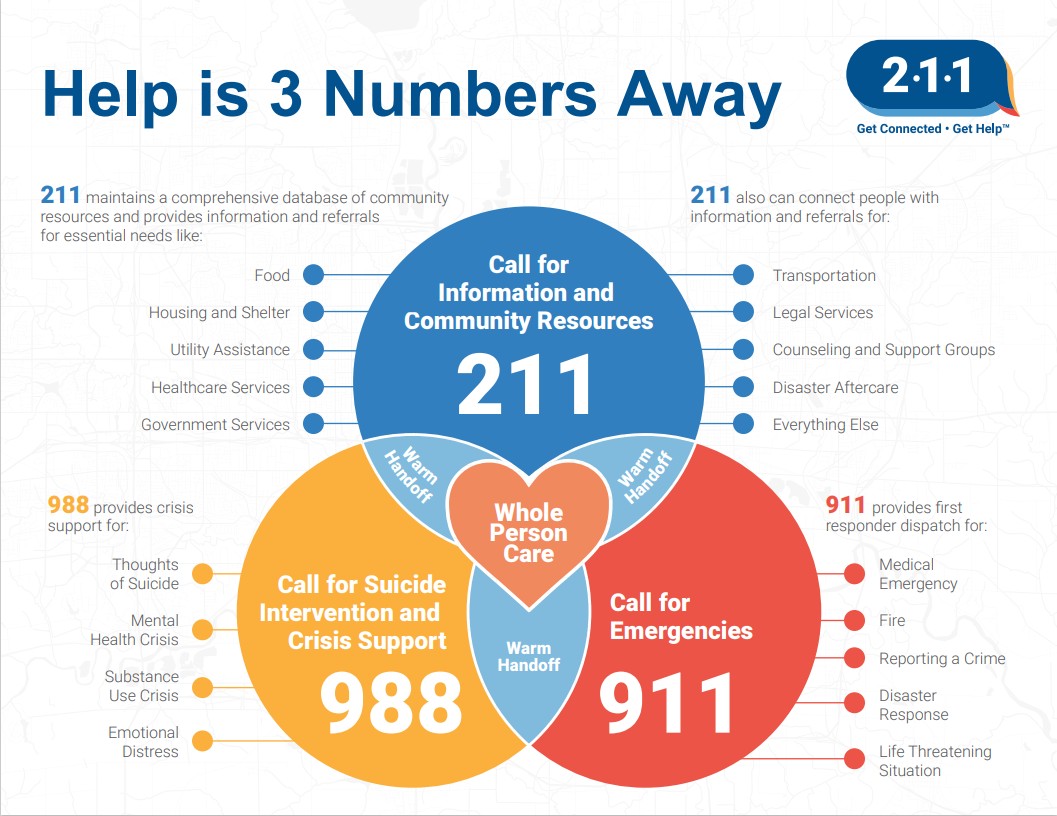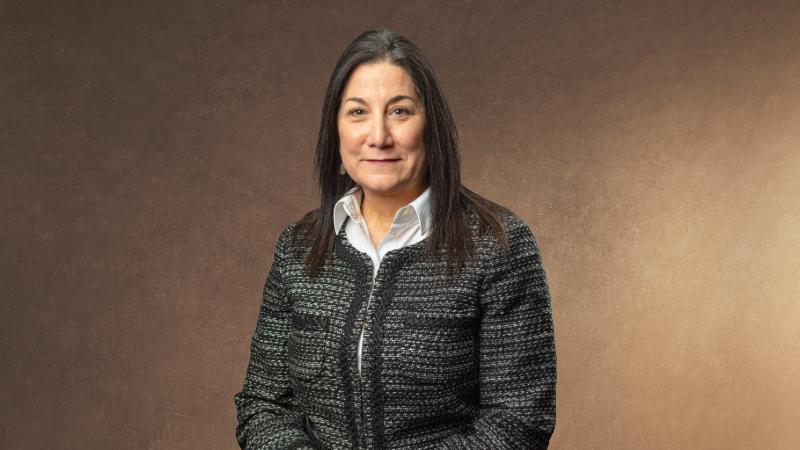
April 4, 2024
Every day, we encounter situations where we may need help or information quickly. That’s where these important phone numbers come in handy - 211, 988, and 911. Let’s learn about each of them and how they can assist us.
911: For Emergencies Only
You’ve likely heard about 911 before, but it’s essential to understand its importance. 911 is the number to call in an emergency and the person or people involved are in immediate danger. Emergencies are situations that require immediate attention from law enforcement, firefighters, or medical personnel, including Emergency Medical Services (EMS) or Mobile Crisis Response Team members (available in Lewis and Clark County.)
Examples of emergencies include:
- Fires
- Medical emergencies (such as severe injuries or sudden illness)
- Crimes in progress
- Car accidents with injuries
- Any situation where someone’s life or property is in danger
When you call 911, it’s crucial to stay calm and provide the operator with as much information as possible about the emergency. This information helps emergency responders assess the situation and provide the necessary assistance quickly. Remember, 911 is for emergencies only. Calling for non-emergencies can tie up the line and delay help for those in emergent situations. Let’s use 911 responsibly, ensuring help is readily available when truly needed.
988: Mental Health Crisis Hotline
Taking care of our mental health is just as important as caring for our physical health. If you or someone you know is experiencing a mental health crisis, suicidal crisis, emotional distress, substance use crisis, you can call 988 for immediate assistance. 988 is a national hotline dedicated to providing support and resources for individuals in crisis. It should be noted that you should call 911 if a person is in immediate danger including active or ongoing suicide attempt.
When you call or text 988, you’ll be connected with a trained crisis intervention specialist who can provide help to reduce emotional distress by offering confidential support, guidance, and resources. They can help you navigate through difficult emotions, thoughts of self-harm, or other mental health challenges. Remember, it’s okay to reach out for help when you need it, and 988 is here to support you 24/7, 365 days of the year.
211: Your source for getting connected to resources
Have you ever needed assistance but didn’t know where to turn? That’s where 211 comes in. 211 is a helpline available in many areas across the United States and Canada. When you dial 211, you can connect with a trained specialist who can provide information and referrals to various community resources. These resources may include:
- Food assistance programs
- Housing and utility assistance
- Mental health support
- Employment services
- Childcare and family services
- And much more
Whether you’re facing a non-medical crisis or simply need help finding local services, dialing 211 or visiting https://montana211.org/search.php online can connect you with the support you need.
Knowing important phone numbers like 211, 988, and 911 can help keep you safe and connected to valuable resources in your community. Whether you need assistance finding local services, support during a mental health crisis, or immediate help in an emergency, these numbers are here for you.
Take some time to familiarize yourself with these numbers and share this information with your friends and family. By working together and supporting one another, we can create a safer and healthier community for everyone.
Kayla Morris is the Supervisor of Community Based Services in the Population Health Department at St. Peter’s Health. With a bachelor's degree in public health and health sciences, Kayla has a passion for working with vulnerable populations and improving population health. She leads the Helena Area Housing is Healthcare / Frequent Users of System Engagement (FUSE) project and initiated the Community Health Worker’s program at St. Peter’s Health. Before her current role, Kayla managed grants related to Sexual Assault and Victim Advocacy programs. She is dedicated to improving the health outcomes of those experiencing housing insecurity or houselessness in her community.


